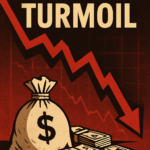Sector ETFs offer a strategic approach to enhance your diversified and risk-managed investment portfolio, aligning with the medium-term economic and interest rate forecasts. These funds allow investors to adjust their portfolio weights according to the prevailing economic conditions, benefiting from sectors that historically perform well during specific phases of the economic cycle. For instance, consumer staples, healthcare, and utilities sectors tend to thrive during recessions due to their defensive nature. On the other hand, sectors like REITs and energy can be targeted for overweighting without the need to pick individual stocks, providing a streamlined way to capitalize on sector-specific growth opportunities. This detailed exploration delves into the nuances of utilizing sector ETFs, offering insights into their strategic importance, and presenting a curated list of sector ETFs that stand out for their performance, management, and potential for future growth.
The Strategic Importance of Sector ETFs in Portfolio Management
Sector ETFs serve as a vital tool for investors aiming to enhance their portfolio’s diversity and resilience against market fluctuations. These funds allow for targeted investments in specific sectors of the economy, such as technology, healthcare, or financial services, enabling investors to overweight sectors with favorable outlooks or hedge against those with less promising futures. The approach to using sector ETFs is twofold:
- Macro-Economic Sensitivity: By understanding the macro-economic trends and interest rate movements, investors can position their portfolios to benefit from sectors that historically thrive under certain economic conditions. For instance, sectors like utilities and healthcare tend to be less sensitive to economic downturns, offering stability during volatile periods.
- Risk Management and Diversification: Sector ETFs offer a straightforward way to diversify investments across various industries without the complexity of selecting individual stocks. This diversification can significantly reduce the risk of portfolio volatility, as the impact of sector-specific downturns is more diluted across a diversified investment base.
Five Sector ETFs for Consideration
Vanguard Materials ETF (VAW)
- Growth and Income:
- Yield: Approximately 1.79%.
- Growth and Income: VAW has showcased commendable growth, supported by the materials sector’s cyclicality and its potential for high returns during economic upswings. Historically, it has offered a yield that reflects the sector’s robust dividend-paying capacity, with a notable growth rate in income distributions over the years.
- Valuation: The ETF’s valuation metrics, such as price-to-earnings (P/E) and price-to-cash flow (P/CF), often reflect the underlying economic cycles, with more attractive valuations during industry downturns. Its diversified holdings help balance the valuation, providing a mix of growth at a reasonable price.
- Key Holdings: VAW’s portfolio is concentrated in leading companies within the materials sector, including chemical producers, mining companies, and construction materials firms. Top holdings have historically included industry leaders known for their operational efficiency and dividend reliability.
Vanguard Consumer Discretionary ETF (VCR)
- Growth and Income:
- Yield: Around 0.9%, reflecting the growth-oriented nature of the sector.
- Growth and Income: VCR targets the consumer discretionary sector, capturing the growth potential of consumer spending trends. The ETF benefits from the performance of key holdings like Amazon and Tesla, driving its growth metrics. While traditionally lower in yield due to the growth focus of its holdings, the ETF offers potential for significant capital appreciation.
- Valuation: The valuation of VCR reflects the high-growth nature of its constituents, with a P/E ratio that might appear elevated relative to more defensive sectors. However, the cash flow metrics and growth projections justify these valuations, highlighting the future earnings potential of its holdings.
- Key Holdings: Dominated by high-growth companies in e-commerce, automotive, and home improvement sectors, VCR’s portfolio is designed to leverage consumer trends and innovation. Amazon and Tesla are notable examples, alongside companies like Home Depot and Nike, which offer both growth and stability.
Vanguard Financials ETF (VFH)
- Growth and Income:
- Yield: Approximately 2.1%, benefitting from the financial sector’s traditional role as a solid dividend payer.
- Growth and Income: VFH provides exposure to the financial sector, encompassing banks, insurance companies, and investment firms. The ETF has historically offered a solid yield, reflective of the sector’s propensity for regular dividend payments. Growth prospects are closely tied to interest rate movements and economic health, making it a cyclical play with income benefits.
- Valuation: Financial sector valuations, as reflected in VFH’s holdings, are often more conservative, with lower P/E ratios compared to high-growth sectors. This makes VFH an attractive option for value-oriented investors seeking growth potential and income.
- Key Holdings: VFH’s diversified approach captures a broad spectrum of financial services, including major banks like JPMorgan Chase and Bank of America, as well as investment giants such as BlackRock. This mix ensures a balance between traditional banking operations and the growing fintech space.
Vanguard Real Estate ETF (VNQ)
- Growth and Income:
- Yield: Around 4.0%, indicative of the high dividend yield characteristic of REITs.
- Growth and Income: VNQ focuses on real estate investment trusts (REITs) and offers investors a blend of income and growth. The ETF benefits from the income-generating capabilities of REITs, with a higher yield compared to the broader market. Growth prospects are tied to real estate market trends and interest rate levels.
- Valuation: The P/CF ratio is a critical valuation metric for REITs, given their cash flow-intensive nature. VNQ’s valuation offers an attractive entry point into the real estate sector, balancing yield and growth potential against the backdrop of varying market cycles.
- Key Holdings: The ETF includes a variety of REITs, spanning commercial, residential, and industrial real estate. Specialized REITs, such as those focusing on data centers and telecom towers, represent areas of growth within VNQ’s portfolio.
Vanguard Communications Services ETF (VOX)
- Growth and Income:
- Yield: About 1.1%, reflecting the sector’s blend of mature telecom services and high-growth digital media companies.
- Growth and Income: VOX captures the dynamic communications sector, including media, telecom, and internet service providers. While the yield may be moderate, the growth potential is significant, driven by the digital transformation and the increasing demand for communication services.
- Valuation: The ETF’s holdings are valued not just on earnings but also on growth prospects and market dominance. With a mix of established telecom giants and emerging tech companies, the valuation reflects both stability and growth potential.
- Key Holdings: Key constituents include leading tech firms like Alphabet (Google) and Facebook (Meta Platforms), which dominate the digital advertising space. The ETF also holds traditional telecom companies, offering a balance between high-growth tech and steady, dividend-paying telecom services.
Sector ETFs are an indispensable component of a modern investment strategy, offering the benefits of diversification, risk management, and sector-specific exposure. By carefully selecting ETFs from sectors with strong growth prospects and aligning them with macroeconomic trends, investors can construct a resilient and dynamic portfolio. The highlighted Vanguard ETFs represent a cross-section of opportunities across the materials, consumer discretionary, financials, real estate, and communications sectors, each with its own unique attributes and potential for investor returns.






















Leave a Reply
You must be logged in to post a comment.